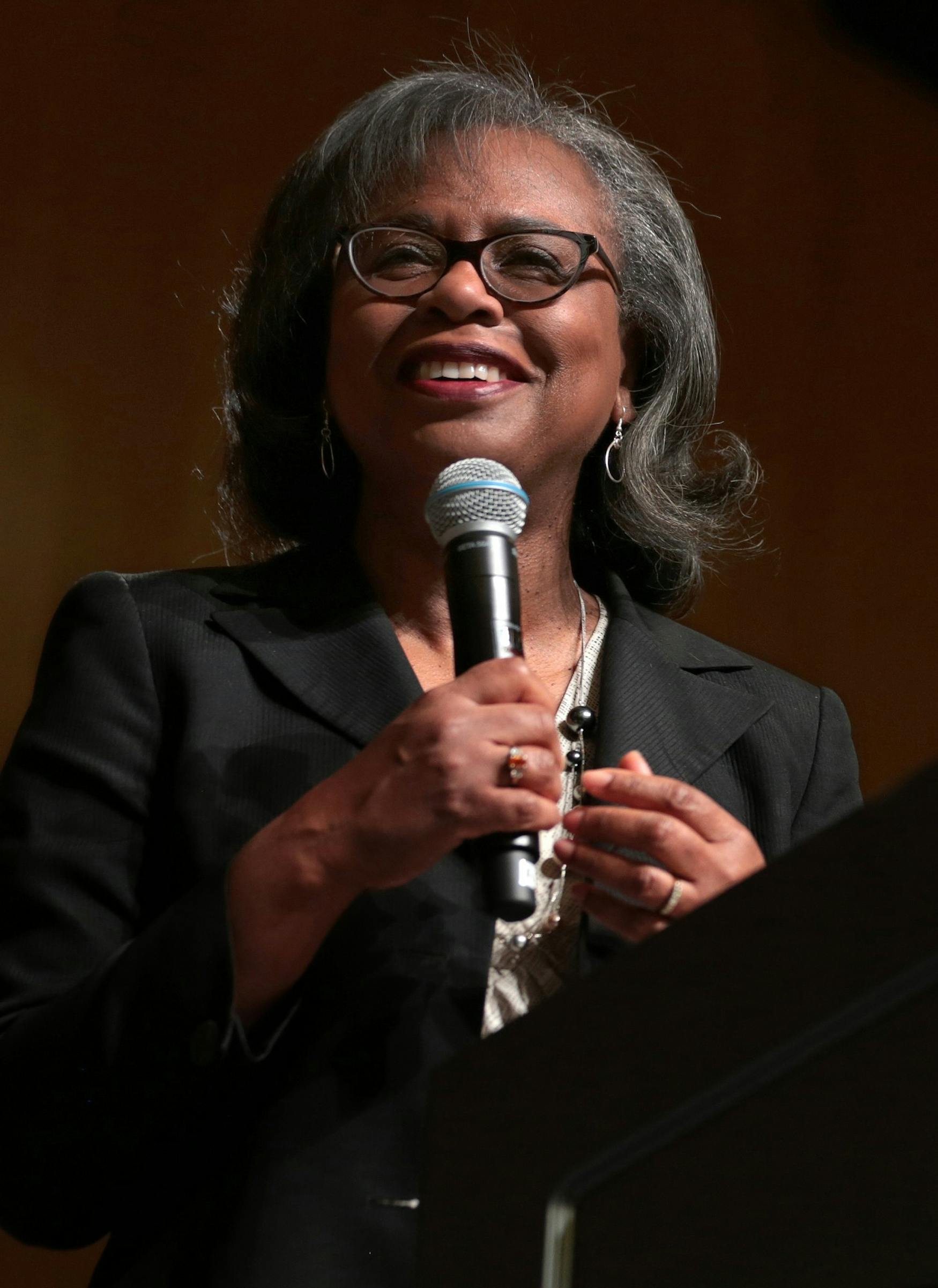Anita Hill speaks about new book 'Believing'
The Justice spoke with Hill about her new book, "Believing: Our Thirty Year Journey to End Gender Violence."
In 1991, a 35-year-old Anita Hill testified against United States Supreme Court Justice nominee Clarence Thomas at his Senate confirmation hearing. She was the first person to ever testify against a Supreme Court Justice nominee with claims of sexual harassment, but she would not be the last. In September 2018, Christine Blasey-Ford testified against Supreme Court Justice nominee Brett Kavanaugh for the same reason. Both Kavanaugh and Thomas are acting associate justices with life tenure and the power to shape reproductive and equal opportunity laws on a national level.
Hill teaches at the University’s Heller School for Social Policy and Management as well as in the Legal Studies, African and African American Studies and Women’s, Gender and Sexuality Studies departments. In a phone interview with the Justice on Sept. 23, she looked back on her feelings while watching Blasey-Ford testify, much like Hill herself did decades earlier.
“There’s no complaint system for [Supreme Court Justice nominee hearings] and that’s totally absurd –– there’s no process,” Hill said. She said that she had hoped Blasey-Ford would be treated differently, but was ultimately disappointed. However, she added that since the early 1990s, the attitude of the American public changed for the better. “70% of Americans believed Christine Blasey-Ford’s testimony –– that’s very different from the public response I got,” she said.
When asked how she would have advised her 1990s self on trial, or other people thinking of filing a sexual harassment complaint, Hill said, “find out what the system is: know what you’re getting into and what your resources are for navigating it.” She explained that at the time, resources “were not something I sought out. I was fortunate because my friends who are lawyers came together to help me. They volunteered and have never been compensated for that.”
However, she clarified that her book “Believing: Our Thirty Year Journey to End Gender Violence” addresses violence and victimhood of all kinds, not just sexual harassment. “I view bullying, domestic violence in relationships, and even school shootings as relating to gender-based violence. I do this because victims and survivors for years have said that these behaviors are connected,” she said.
Hill said that we tell young girls “‘he’s teasing you because he likes you’ or ‘that’s just how boys are.’ This does a disservice to the girl, because she thinks ‘I have to experience pain if someone likes me,’ and boys think this is the way to show affection when it's the opposite of how they should be behaving.”
We tend to isolate gender-based violence from other types of violence, Hill said, but “this is a public problem, not a situation victims have to figure out on their own.”
“Believing”’s online book description says that “our descriptive language undermines progress towards solutions.” When asked to elaborate on this, Hill said, “this is the language used to describe my trial and how Clarence Thomas behaved. He was belittling and condescending and said [his descriptions of pornography and women's’ bodies] ‘weren’t so bad.’”
Hill used the example of the early September congressional hearing investigating the U.S. Olympic gymnasts’ abuse at the hands of former coach Dr. Larry Nassar. She said, “The FBI investigator leading the hearing said ‘is that all,’ implying that what you went through wasn’t enough.” Our descriptive language refers to our society: “it’s descriptive of how they perceive a situation, but not how we [as victims] do.”
Commenting on the recent Texas abortion law, Hill said she was not an expert on reproductive justice. However, she said “the vigilantism” of the law relates to her study of sexual and gender-based violence. “It allows anyone to be a part of policing of women and their bodies and opens women to abuse in ways that are unconscionable,” she said. She continued, “We [Americans] have enough issues with the police, and they have standards as state workers. That’s putting women at risk for even more violence if the state is authorizing private vigilantism with no constraints about how that role will be fulfilled. And that's profoundly disturbing.”
This Oct. 11 will mark the 30-year anniversary, to the day, of the infamous trial. Hill’s new book focuses on the societal problems with gender-based violence that lead to the ones in our government. Hill said, “My advice isn’t always to file a complaint in a system –– and I don’t blame people if they don’t want to do that. I want to be clear that ‘Believing’ is about how we can change as a society.”
Hill’s new book has been written about by The New York Times Book Review, Politico, The Atlantic, Harper’s Bazaar, Vogue, the Chicago Sun Times, the Boston Globe and NPR. She recently appeared on CNN and the “Today” show to speak about it.
—Note: All quotes in this article are original to the Justice’s interview.




Please note All comments are eligible for publication in The Justice.